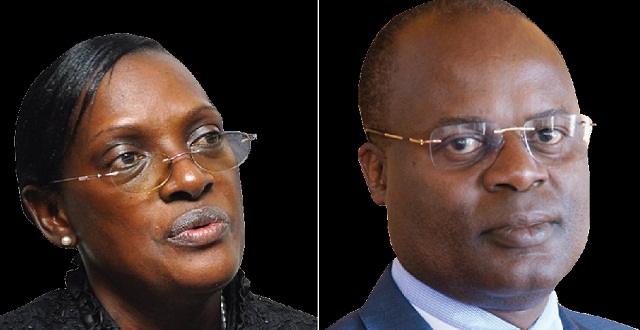
Initially, Ssekabira said that the inventory report was provided as a summary but later conceded that BoU never prepared an inventory list before closing Teefe.
Deputy Governor Louis Kasekende, at that point told COSASE that when Teefe was closed, there was no legal requirement to maintain an inventory list.
But it emerged that even the Financial Institutions Statute of 1993under which Teefe was closed required the central bank, among others, to as soon as possible after taking possession of a financial institution, make an inventory of the assets of that financial institution.
Pushed to a corner, BoU provided more information regarding the Teefe closure.
Away from Teefe, the committee embarked on another aspect—the lack of reports on the transfer of assets for Greenland Bank, Cooperative, and ICB Bank.
The three banks had assets worth Shs117.7 billion at closure. However, as at June 30, 2016, the asset position had reduced to Shs19.7 billion. Because the AG was not availed with reports on how this happened, he noted that he could not verify.
The committee wanted to know how the assets reduced. Governor Mutebile first said BoU does not have the reports.
In more specific terms, the current executive director Banking Supervision, TumubweineTwinemanzi, told the committee that starting 2002, when BoU was the liquidator, there were no reports detailing the movement of assets for the three closed banks.
But The Independent has been told that when the central bank closes a bank, it is required to prepare several reports. One of these reports is called the statement of affairs. It provides an overview of the bank’s assets and liabilities.
For instance, while the statement of affairs of June 30,2016 indicated that all the physical loans and customer assets had been sold, it later emerged that the liquidator did not sell all the assets previously owned by one of the banks—Co-operative Bank.
These titles remain in the custody of the Central Bank. Officials explained that the three title deeds for Co-operative Bank were not sold because of ownership disputes over them.
BoU officials noted that in their view the information they had provided the AG was adequate to explain the movement of assets.
However, Katuntu insisted that while during the period when others performed the role of liquidation, there were regular reports which showed clear movement of assets, when BoU directly took over, those reports are not there.
“Now that those reports are not there, the AG could not verify the movement of assets,” Katuntusaid,“Why are there no reports during the time you are managing the process of liquidation of assets?”
That is when the Bagyenda affair flared.
At the investigation rages, it is becoming clear that at a very twist and turn in the process of closure of banks, BoU officials eitherlack critical documents to explain their decisions (and therefore, did not do their job as per the law) or are withholding these documents, which according to critics, raises a question: what could be the motive?
Amidst all this, questions remain as to whether COSASE has the capacity tonavigate these waters and fully interrogate the complex issues surrounding the closure of banks.
Some critics feel that while COSASE could deal with administrative issues, to get to them bottom of the crisis around closures and come up with a strong report, government needed to get experts from international institutions, which are mature like the Bank of England to investigate the central bank.
In the past, government has engaged an international institution to identify experts that could study the central bank’s capital inadequacies. This study took place between 2010 and 2012.
What is clear, though, is that COSASE has further opened up the central bank for public scrutiny and broadened the debate beyond the squabbles within its leadership ranks.
For instance, before the investigation started, some had concluded that reports about the crisis at the central bank were merely the handiwork of detractors looking to discredit senior officials at the bank.
But since officials started appearing before the committee and contradicting each, it is increasingly becoming clear that several officials at the bank have a few questions to answer.
The main question now is whether Katuntu’s team can ask these questions, press the officials for answers and once they find them culpable of any wrong doing, push for action against culpable officials.
Even here, many remain pessimistic mainly because many investigations by committees of parliament including those of COSASE under Katuntu,have tended to be ritualistic and not translated in any concrete actions against any officials.
Despite this, many will be looking at how the outcomes of the probe will affect Mutebile, his deputy Kasekende, and the central bank’s board, who are responsible for carrying out the oversight role on the operations of the central bank and under whose watch all this transpired.
 The Independent Uganda: You get the Truth we Pay the Price
The Independent Uganda: You get the Truth we Pay the Price



For God and my country